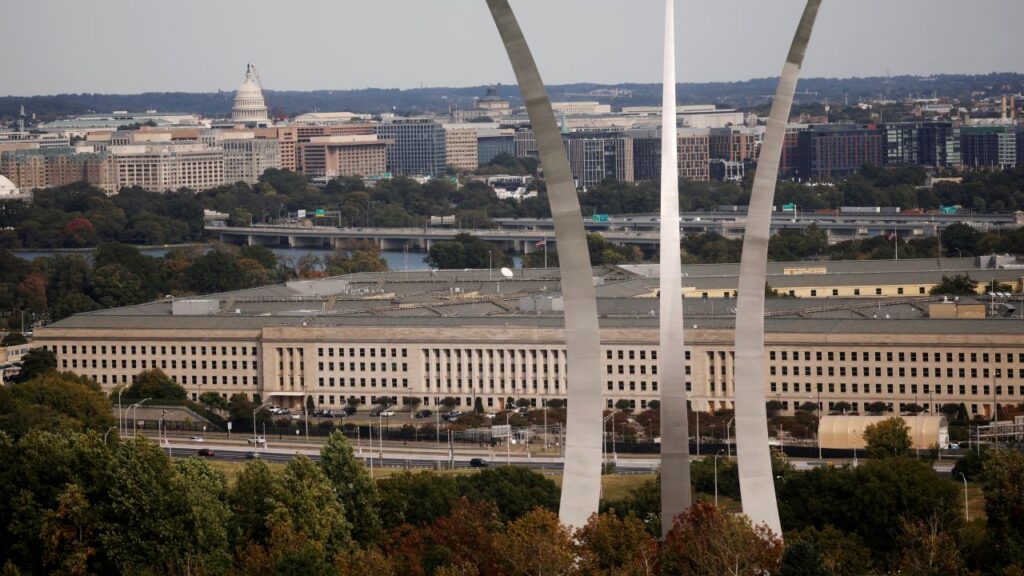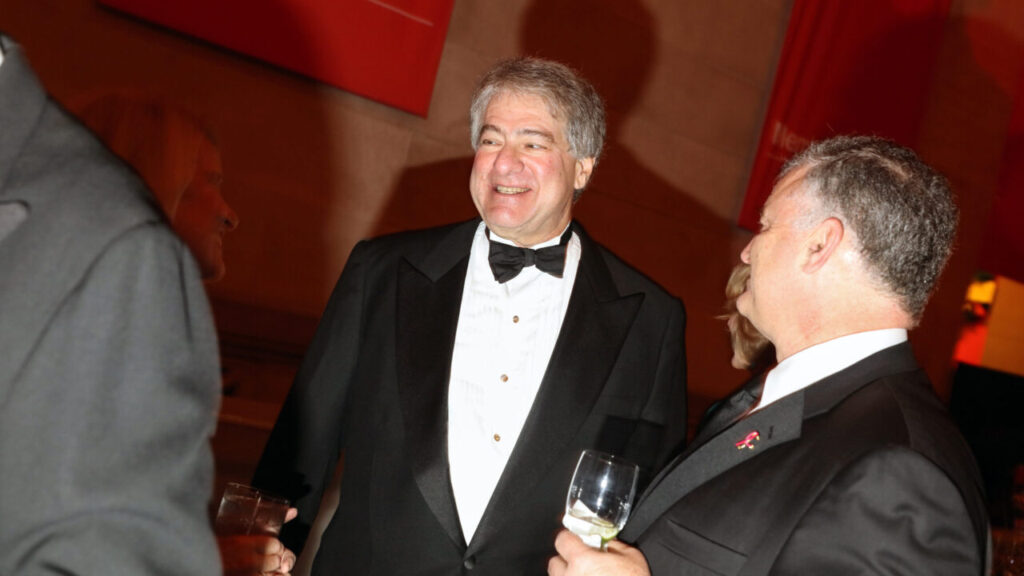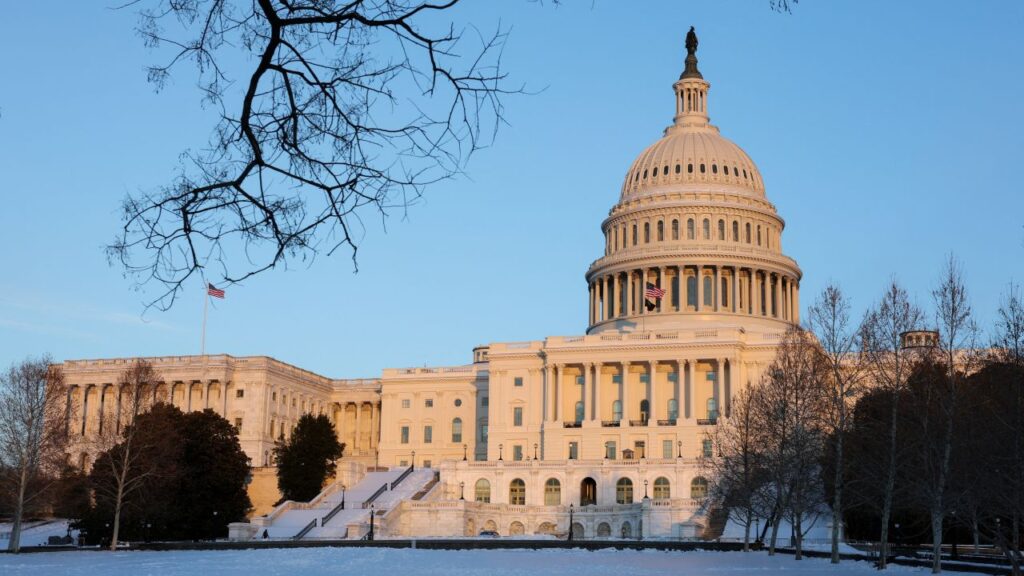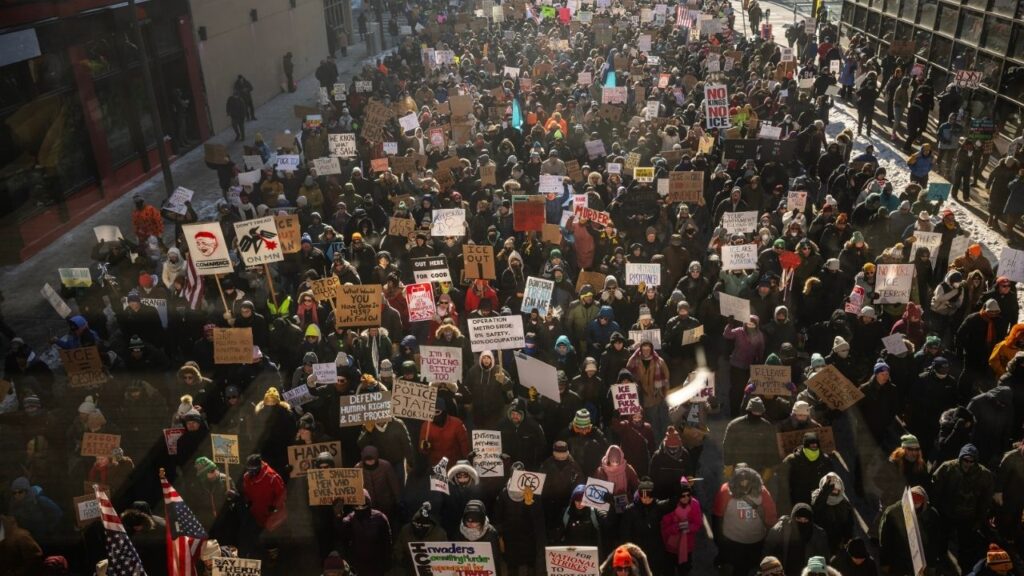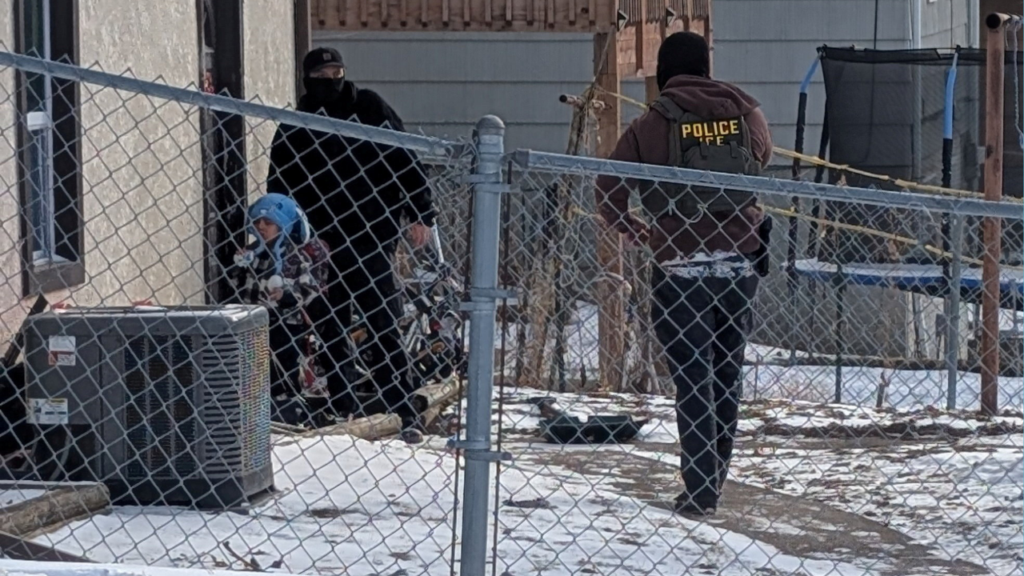The Supreme Court's 6-3 decision narrows the federal anti-corruption law's reach, excluding after-the-fact gratuities to state and local officials from criminal prosecution, a move that has sparked significant debate over its implications for public integrity. (Eric Lee/The New York Times)

- The Supreme Court ruled 6-3 that federal anti-corruption laws don't apply to after-the-fact gifts to state and local officials.
- The conservative majority argued that state and local governments should regulate such gratuities, not federal law.
- The dissenting justices warned that this decision weakens protections against public corruption.
Share
|
Getting your Trinity Audio player ready...
|
WASHINGTON — The Supreme Court limited the sweep of a federal law Wednesday aimed at public corruption, ruling that it did not apply to gifts and payments meant to reward actions taken by state and local officials.
Vote Split on Ideological Lines
The 6-3 ruling, which split along ideological lines, was the latest in a series of decisions cutting back federal anti-corruption laws.
Justice Brett Kavanaugh, writing for a conservative majority, said that the question in the case was whether federal law makes it a crime for state and local officials to accept such gratuities after the fact. He wrote, “The answer is no.”
Federal prosecutors’ interpretation of the law created traps for public officials, leaving them to guess what gifts were allowed, he added. If they guessed wrong, the opinion continued, the officials could face up to a decade in prison.
Related Story: What’s Left for the Supreme Court to Decide? Here’s the List.
Decision Reflects Sharp Division of the Court
The decision reflected a sharp divide on the court, with Justice Ketanji Brown Jackson, joined by Justices Elena Kagan and Sonia Sotomayor, dissenting. While the conservative wing asserted that the ruling gave discretion to state and local governments and protected officials from having to guess whether their behavior had crossed a criminal line, the liberals said the decision represented more chipping away of a statute aimed at protecting against graft.
“Officials who use their public positions for private gain threaten the integrity of our most important institutions,” Jackson wrote. “Greed makes governments — at every level — less responsive, less efficient and less trustworthy from the perspective of the communities they serve.”
In what appeared to be a dig at the court’s conservative bloc, Jackson added that the defendant in the case offered an “absurd and atextual reading of the statute” that “only today’s court could love.”
The decision was issued as the court faces increased scrutiny over its ethics practices. After months of revelations by ProPublica and others that Justice Clarence Thomas had failed to reveal luxury travel and gifts from Texas billionaire and conservative donor Harlan Crow, as well as revelations about other justices, the court adopted an ethics code, the first in its history.
The case before the court, Snyder v. United States, No. 23-108, concerned James Snyder, a former mayor of Portage, Indiana, a city of about 38,000 people near Lake Michigan. In 2013, while Snyder was mayor, the city awarded two contracts for a garbage truck company, Great Lakes Peterbilt. Portage bought five garbage trucks for about $1.1 million.
Related Story: The Supreme Court Rules for Biden Administration in a Social Media Dispute with ...
The Synder Case
In 2014, after the process was complete, the company cut Snyder a check for $13,000 for what he later said were consulting services.
The FBI and federal prosecutors said the bidding process had been manipulated to ensure the company prevailed. Investigators said the money was a gratuity for the garbage truck contracts, but Snyder said it was payment for his consulting services as a contractor for Peterbilt.
A jury convicted Snyder of accepting an illegal gratuity, and a federal judge sentenced him to more than a year in prison. On appeal, Snyder argued that the federal statute criminalized only bribes, not after-the-fact gratuities. A federal appeals court affirmed his conviction, and Snyder petitioned the Supreme Court to review the case.
The majority explained that the law typically makes a distinction between bribes — payments made or agreed to before a government action to influence the outcome — and gratuities — payments made after a government action to reward or thank the public official.
Related Story: International Court Seeks Arrest of Russian Officials Over Attacks on Ukrainian ...
Although bribes are frowned upon as inherently corrupt, the majority noted, federal, state and local governments have treated gratuities with more nuance.
In its reasoning, the conservative majority said it relied on statutory history and text, among other factors, to find that the federal statute focused on bribes, not gratuities.
Kavanaugh Says Gifts to Officials are Often Regulated
Kavanaugh wrote that such gifts to officials were often already regulated by state and local governments. The federal law, he wrote, “does not supplement those state and local rules by subjecting 19 million state and local officials to up to 10 years in federal prison for accepting even commonplace gratuities.”
Rather, he wrote, the law “leaves it to state and local governments to regulate gratuities to state and local officials.”
To uphold prosecutors’ interpretation of the law “would significantly infringe on bedrock federalism principles,” Kavanaugh wrote.
The federal law, he added, lacked clear guidance for local officials to follow, leaving them to try to discern what actions might amount to a violation.
He cited examples, nodding to the case’s origins in Indiana.
“Could students take their college professor out to Chipotle for an end-of-term celebration?” he wrote. “And if so, would it somehow become criminal to take the professor for a steak dinner? Or to treat her to a Hoosiers game?”
While “American law generally treats bribes as inherently corrupt and unlawful,” Kavanaugh wrote, gratuities are another matter. Some can be “problematic,” while others can be “commonplace and might be innocuous.”
He listed examples. A family tipping their mail carrier. Parents sending a gift basket to thank their child’s teacher at the end of the school year. A college dean giving a sweatshirt to a city council member who speaks at an event.
Those examples, he wrote, suggest that “gratuities after the official act are not the same as bribes before the official act,” adding that unlike gratuities, “bribes can corrupt the official act — meaning that the official takes the act for private gain, not for the public good.”
In a concurring opinion, Justice Neil Gorsuch wrote that the decision reflected an age-old understanding that when “any fair reader of this statute would be left with a reasonable doubt” as to whether the law applied to the defendant’s actions, the court must err on the side of the person charged with the crime.
–
This article originally appeared in The New York Times.
By Abbie VanSickle and Adam Liptak/Eric Lee
c.2024 The New York Times Company
Distributed by The New York Times Licensing Group






